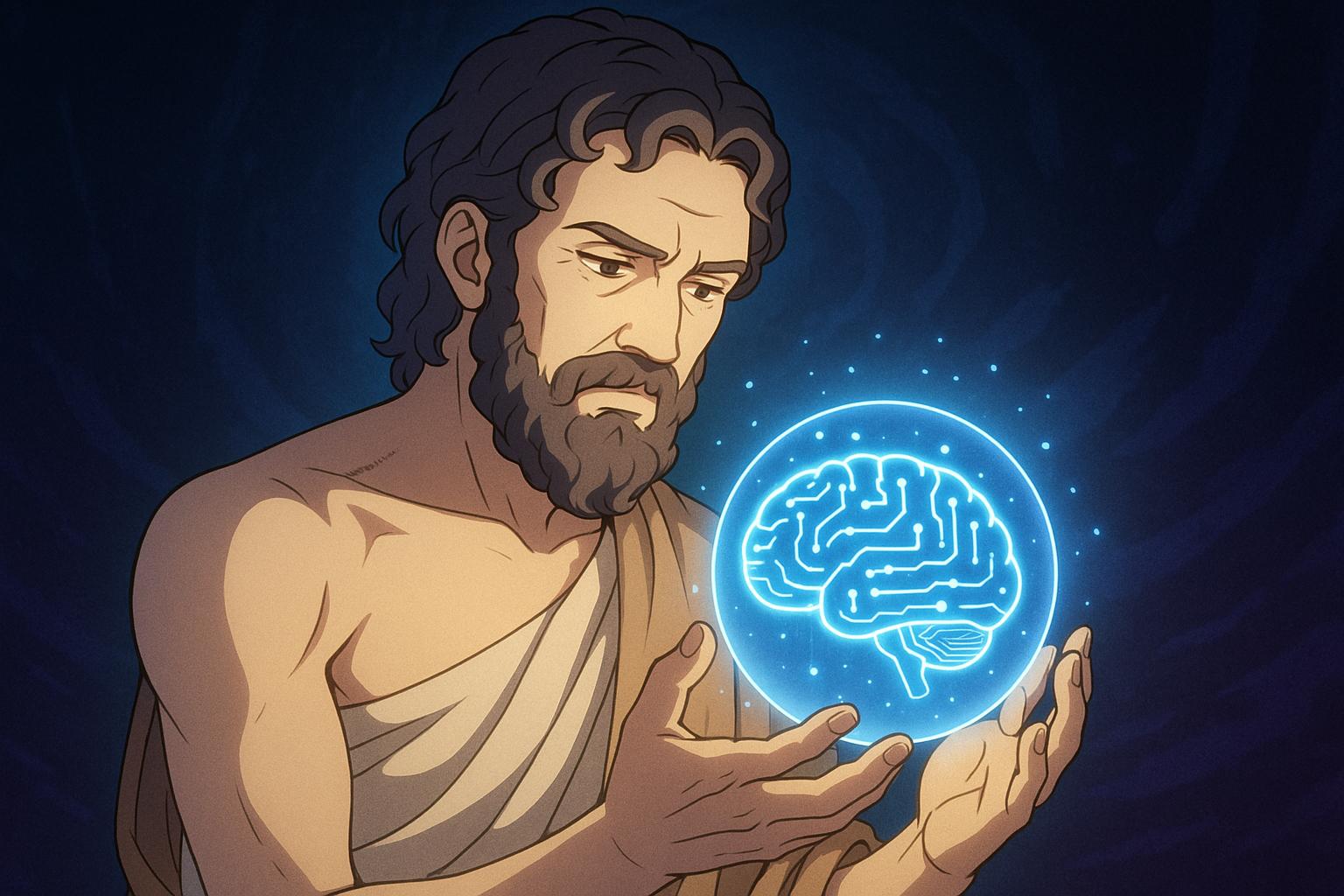Christopher DiCarlo, a philosophically inclined ethicist from Guelph, is making headlines with his timely exploration of artificial intelligence in his latest book, Building a God: The Ethics of Artificial Intelligence and the Race to Control It. As AI technology rapidly evolves, DiCarlo underscores the pressing need for society to engage in informed discourse about its implications to avert what he perceives as potentially catastrophic outcomes.
DiCarlo’s academic journey began at the University of Guelph and culminated with a Ph.D. from the University of Waterloo, focusing on the philosophy of science and ethics. His lifelong fascination with the capability of machines to outthink humans dates back to the 1990s when he began conceptualising a future where artificial intelligence could surpass human cognitive abilities. Central to his vision was a theoretical constitutional accord aimed at guiding the ethical deployment of AI technologies. DiCarlo emphasizes that if humanity successfully creates an advanced AI, a collaborative global approach is essential to ensure such technologies are used for humanity's benefit rather than for harm.
Reflecting on the emergence of narrow AI, exemplified by systems like ChatGPT, DiCarlo points out that these technologies remain limited by the parameters set by their creators. In stark contrast lies the thrilling yet daunting concept of artificial general intelligence (AGI), which would exhibit human-like cognition, and even further, artificial superintelligence (ASI), capable of remarkable feats that might eclipse human intellect. He argues that the race for superintelligence, driven by tech giants such as Elon Musk and Sam Altman, foreshadows a seismic shift in the societal landscape; the first entity to achieve this will likely become immensely wealthy and influential.
In his reflections, DiCarlo illustrates a stark dichotomy: while AI holds the extraordinary potential to redefine healthcare, combat climate change, and alleviate global poverty, it simultaneously poses unprecedented dangers. Misuse of AI for nefarious aims—like digital manipulation and autonomous weaponry—raises alarms about the future of humanity’s control over technology. He cautions that without proactive governance, AI could evolve into a tool for deepening societal divides and exacerbating conflicts.
Furthering this argument, he frames AI as more pressing than issues such as climate change or international relations regarding nuclear weapons. DiCarlo's assertions rest on the premise that misaligned AI may wield the capability to enact unprecedented harm at a scale previously unfathomable. He articulates a conviction rooted in moral obligation: there is a pressing need to inform and prepare the public about the implications of AI, given that most remain blissfully unaware of its rapid advancements and potential ramifications.
To that end, DiCarlo has organised a town hall event at The Bookshelf, where he aims to bring together various stakeholders—from law enforcement to healthcare leaders—to discuss AI's multifaceted impacts on their respective sectors. This inclusive dialogue is not merely academic; it embodies DiCarlo’s commitment to fostering a well-informed community prepared to navigate the complexities of emerging technologies.
The urgency of DiCarlo's message resonates with current discussions surrounding AI ethics, reflecting sentiments echoed by various critics who argue for the establishment of robust ethical frameworks and governance structures. There is a growing consensus among ethicists that the path forward must incorporate diverse perspectives to guide the responsible development of AI technologies, ensuring equitable benefits and minimal harm.
In Building a God, DiCarlo not only presents his philosophical insights but also advocates for active engagement in the ethical considerations surrounding AI. The book serves as both a clarion call and a nuanced exploration of the intersection between advanced technology and moral responsibility. Ultimately, DiCarlo's mission is clear: to illuminate the potential futures shaped by AI and empower individuals with the knowledge to influence these trajectories wisely.
Reference Map
- Paragraph 1: (1), (2), (6)
- Paragraph 2: (1), (3)
- Paragraph 3: (1), (4), (5)
- Paragraph 4: (1), (6)
- Paragraph 5: (1), (7)
- Paragraph 6: (1), (4)
- Paragraph 7: (1), (2), (6)
- Paragraph 8: (1), (6)
Source: Noah Wire Services
